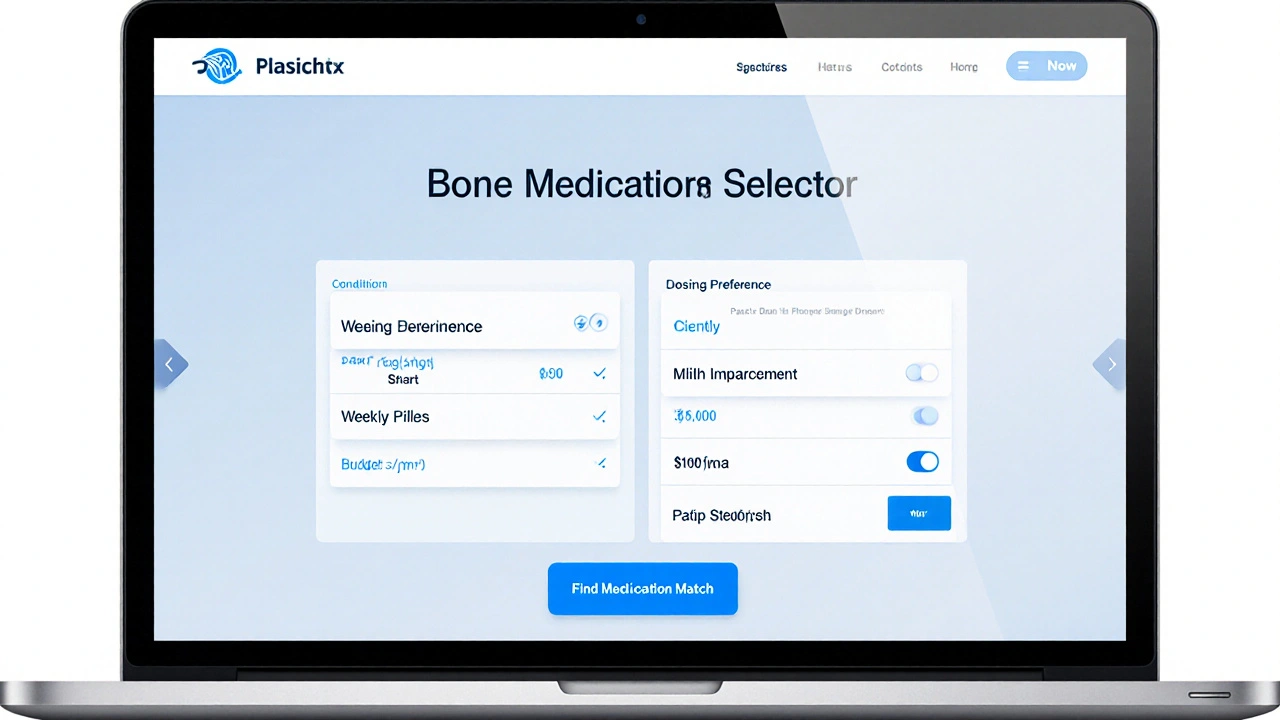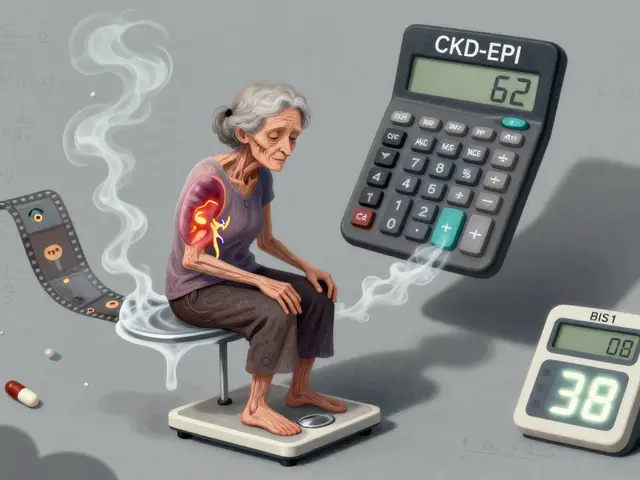Bisphosphonate Alternatives: What You Need to Know
When talking about Bisphosphonate alternatives, any medication or supplement used instead of traditional bisphosphonates to treat bone loss. Also known as non‑bisphosphonate options, these alternatives are important for patients who can’t tolerate the standard pills or who need a different approach. Bisphosphonates, a class of drugs that slow bone breakdown and are often first‑line for osteoporosis work well for many, but they can cause stomach irritation, rare jaw problems, or kidney concerns. That’s why doctors look for other choices. Denosumab, a fully human monoclonal antibody given as a twice‑yearly injection to block a protein that promotes bone loss is one of the most popular non‑bisphosphonate options. It sidesteps the gastrointestinal issues of oral bisphosphonates and offers solid bone‑density gains. bisphosphonate alternatives aren’t just a single drug; they form a toolbox that lets clinicians match treatment to a patient’s health, lifestyle, and risk profile. In short, if you can’t take a pill every week, there’s likely an injectable or oral alternative that fits.
Other Drug Classes That Fill the Gap
Beyond denosumab, several drug families serve as SERMs, selective estrogen receptor modulators that mimic estrogen’s bone‑protective effects without full hormonal exposure. Raloxifene, the most common SERM for bone health, reduces spine fractures and avoids the gastrointestinal upset linked to bisphosphonates. Another group includes calcium and vitamin D supplements, which aren’t powerful on their own but boost the effectiveness of any prescription. For people with severe bone loss, a daily injectable of parathyroid hormone (teriparatide) or its weekly cousin (abaloparatide) actually builds new bone rather than just stopping loss. Calcitonin, an older nasal spray, provides modest pain relief for acute vertebral fractures. Each of these alternatives has its own set of attributes: route of administration (pill, injection, nasal spray), typical duration (short‑term vs. long‑term), and side‑effect profile (e.g., SERMs can cause hot flashes). Choosing the right one often depends on a simple rule—if you can’t take oral meds, look at an injectable; if you need a quick fix for fracture pain, consider calcitonin; if you’re worried about hormone‑related risks, SERMs may fit. The central idea is that bisphosphonate alternatives require a tailored plan based on bone density, kidney function, and personal preference.
Practical factors also shape the decision. Insurance coverage can make a pricey injection like denosumab feel out of reach, while a generic calcium‑vitamin D combo is usually cheap and widely covered. Side‑effects matter too: denosumab can cause low calcium levels, so patients often need a supplement plan, whereas SERMs may trigger mood changes. Frequency of dosing impacts adherence—a twice‑yearly shot is easier for some, while a daily pill fits others’ routines. Ultimately, the goal is the same: keep bones strong and reduce fracture risk. The articles below dive into real‑world comparisons, safety tips, and cost‑saving strategies for each option, giving you the tools to discuss the best plan with your doctor. Browse the collection to see how these alternatives stack up against each other and find the insights that match your situation.
Didronel (Etidronate) vs Alternatives: Which Bone Medication Fits Your Needs?
A clear comparison of Didronel (etidronate) with other bone‑health drugs, covering efficacy, side effects, cost, and how to choose the right option.






